Phongsali is Laos’ northernmost province. Wedged between China’s soft belly and Vietnam’s northwest peaks. It is also where I escaped a robbery/murder attempt some years ago.
It was in the provincial capital (map link), that I chatted to an Adelaide–educated tourist police officer. He was writing out what he thought was a report about a backpacker’s lost bag—just for insurance purposes you know—then I got to the bit about the two guys trying to kill me.
He looked up from his lined sepia notepad and said “Sorry?”
Let me rewind a bit.
I’d left the village of Boun Tai (map link) early. Stranded there the previous evening due to the road being, well, far worse than expected. Once a war period Chinese road, I’d struggle to believe it had seen a lick of work had since. Just kilometre after kilometre of rounded boulders.
It was colder than it looks. Photo: Stuart McDonald.
As with the previous day, the scenery was as stunning as the road was empty. But it was real cold, and the morning mist air in the valleys bit more than licked me. By the time I got to Boun Neua, a crossroads market town, I was a mess. Wild hair, soaking wet and freezing cold.
I pulled up at a noodle joint and the soup and syrupy coffee were welcome. I emptied my bag, pulling out my laptop, camera and so on. Everything soaked. I laid the gear out to dry while I concentrated on enticing my blood back into my hands. To anyone watching I was alone with plenty of kit.
I’m positive that they followed me from here.
My lodgings. Don’t let anyone tell you travel writing is not glamourous. Photo: Stuart McDonald.
From Boun Neua the road runs north to China and east to Phongsali. I took the east road. Thrilled to find a decent road surface, I crawled my way up up up the side of a mountain, making my way towards the capital.
It was along here I first noticed them. Two bikes, way behind. They’d round a corner just as I’d slide around the next. I reached a signposted viewpoint and hiked up to see what I could see. Precious little due to overgrowth. Back to the bike, and the two behind me were gone.
I didn’t give it much thought.
Not long after, I rounded a sweeping bend and there was a bike stopped, parked across the middle of the road. A guy behind it, waving me down to stop.
He was alone. I pulled up close, his bike between me and him.
I didn’t turn my engine off. An oversight that saved my life.
Phongsali province is pretty hilly. Photo: Caroline Gaylard.
The guy was saying something to me but I don’t speak much Lao nor great Thai—I thought I’d heard “Stop stop”. It didn’t occur to me how odd it was he was speaking English.
Still on the bike, feet on the ground, I stood, scooter vibrating between my Levis. Removing my helmet, I half looked over my shoulder and a movement caught my eye. I turned and another guy was running at me, curvy barrelled rifle in his hands. Raised to hit me with the non-pointy end.
I’ll pause to tell you, I am not am action guy. At all. Years later I would tell this story to friends and what they found amazing was that it involved me moving fast.
I swung out with my helmet, aiming for him but making contact with the gun coming down. It flew from his hands and he fell on his backside. Yes, for a moment I was Jason Bourne, just not in quite as good shape. Disagreements on this point are welcome.
Rolling in to Boun Neua. Photo: Adam Poskitt.
I turned, flicked up the stand, burped the bike forward, then, bracing on my left foot kicked at the other bike. It tottered (well we both did) then fell. I gunned, as much as you can gun a step-through, and sped off.
The whole encounter lasted perhaps five seconds.
My left arm looped through my helmet, I almost crashed my bike on the first corner. Arms and hands shaking, I managed to slow enough to slip my helmet back on. Half watching the road, half checking the mirrors, I rode like the blazes.
Heart of an alligator. Stomach like a cricket ball. All I could think of was to get to a village—if they caught me before then, I was dead.
The next village—a hamlet. I pull up. Had a cry and a vomit. I waited.
Were they waiting for me to leave again and catch me on the other side of the village? I stomped my boots hard, paced, got my head together. Then I left, and rode the rest of the way to Phongsali town without incident.
I never saw them again.
I’d ride for hours and not see another vehicle. Photo: Stuart McDonald.
Fast forward back to my Adelaidian educated friend. When I asked who would have done this, his reply came fast.
“Chinese people. Bandits. There is a border crossing near Boun Neua. Lao people cannot have guns like that.”
My question though was why didn’t they shoot me. The officer was vaguer.
“These people, they’re from China, uneducated and silly. But sure they would kill you. Knock you or shoot you, then take your things and push you off the road.”
When I asked what would they have done, if they had hit me, he was unequivocal.
“We would never find you.”
Big skies somewhere near Sin Xai. Photo: Stuart McDonald.
Later, after way too many Beerlaos, I phoned a travel writer I’d met earlier in Huay Xai on the Thai border. I knew he was planning the same route so wanted to warn him.
“Some guys tried to kill me today!” I blurted.
Mark E. was in Luang Prabang at the time and I was so well soused, we agreed it would be better to talk again the next day.
Later, he said talk of the town, over beers, was two French were shot in similar circumstances a month or so ago. He wasn’t sure if the story was true. He travelled the same route a month later without incident.
For years this experience put me off riding in remote areas alone. Everything is fine until it isn’t. The officer in Phongsali, inferred I could have been far more prudent.
I’m paraphrasing, but it was something like;
“Almost all people here have nothing compared to you. While for most people, they would never think to take it off you, some would. Local people are wealthy in different ways, they have no camera, but many don’t want one. The money from a camera could help them in many better ways than your photos help you.”
He’d clearly seen the quality of my photos.
He wasn’t, by any means excusing the crime. He was outraged and was beyond apologetic—to the point where it was embarrassing. After all, I was still alive.
But what he was advising was to be aware of your surroundings, of local people’s situations. Tread with care, with thought, and try not to leave an indelible mark on people’s memories.
The sunset on that day. From the roof of my hotel. It was a pensive evening. Photo: Stuart McDonald.
“What is it they say, walk on the beach and leave only footprints, so the sea can wash them away. Be like that. I wish more foreigners came, Phongsali is beautiful.”
Later he reminisced about his time in South Australia. Again, I’m paraphrasing.
“I loved to walk on the beaches in South Australia. So beautiful, but so wild and stormy. My wife still talks about it. She says it is like Antartica is pure and washes against Australia to take the badness away. One day we walked on the beach and saw a dead shark. It was not big, maybe a metre, but neither of us had seen one in real life before. We stood there and stared. The waves washed around it and took it back to sea.”
I’m not sure what his exact point with the shark story was, but there was a long pause. We both sat, strangers in Phongsali, looking at his notepad. He lit another cigarette then pushed the paper over for me to read and sign. We were done.
“So, how long do you stay in Phongsali?”

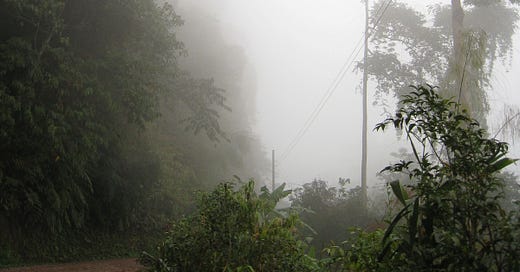




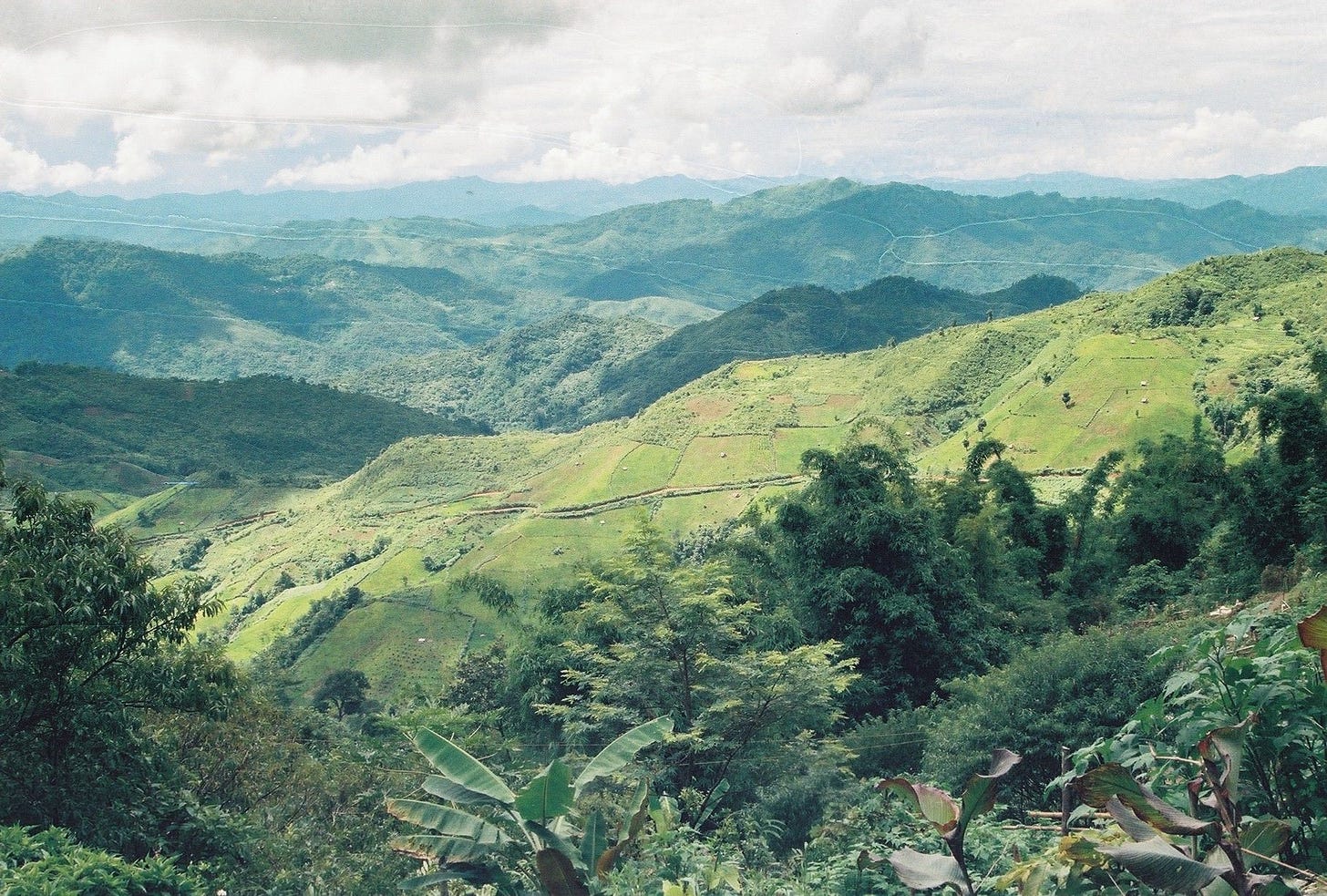


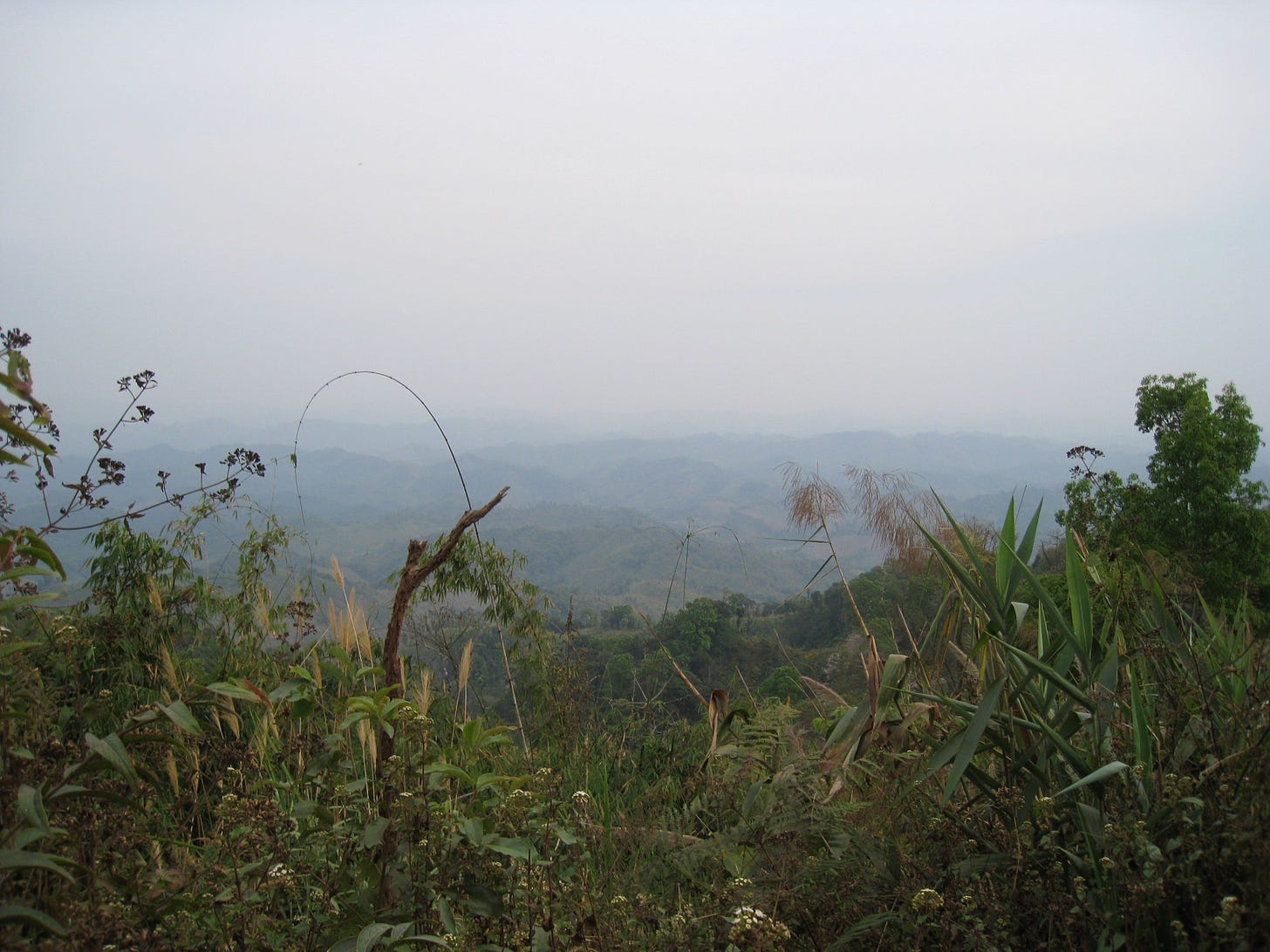
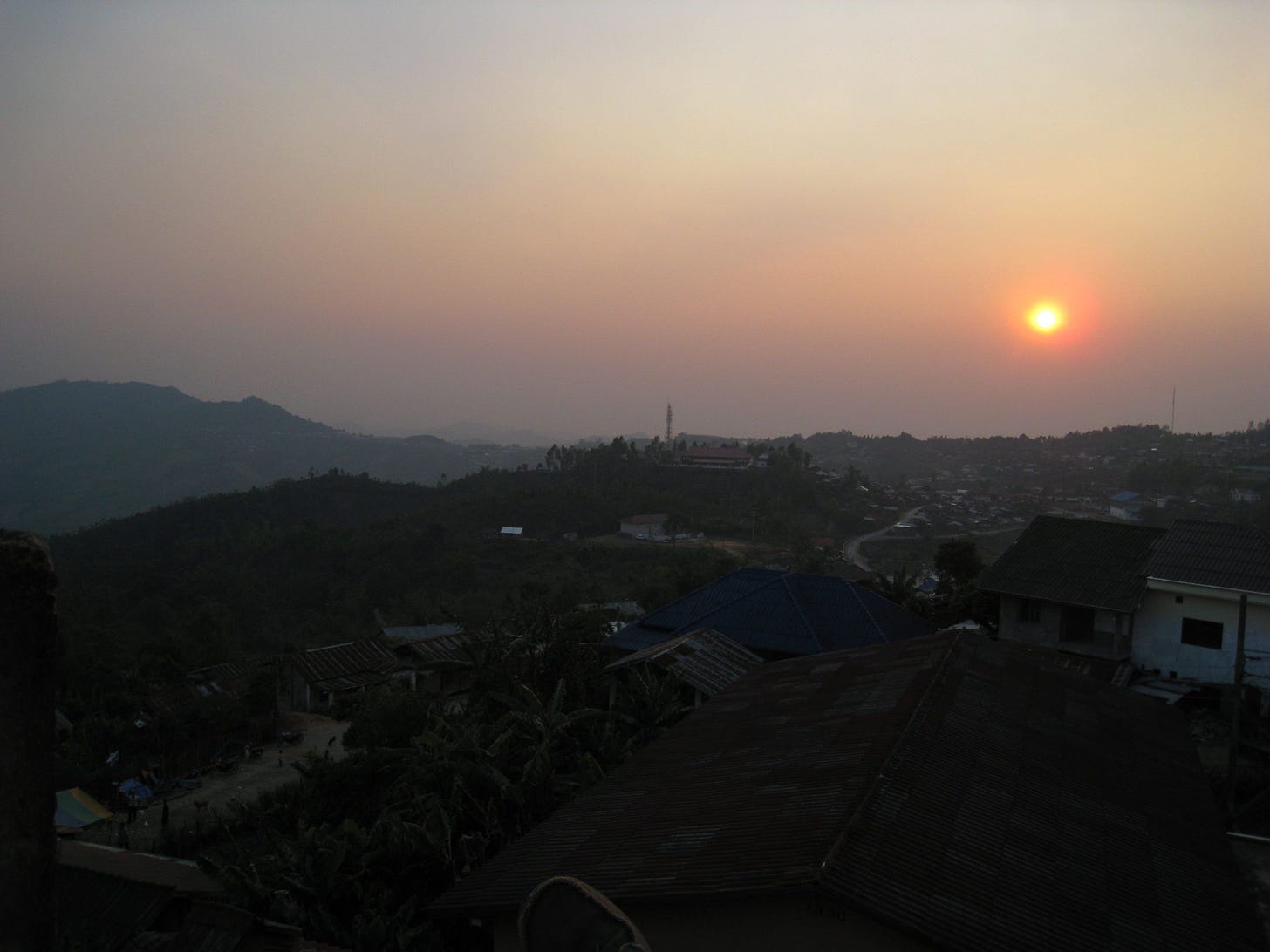

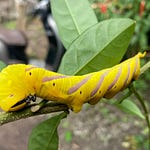
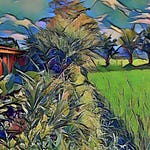

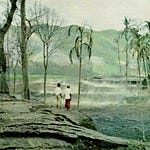
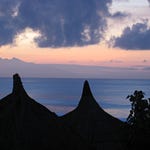
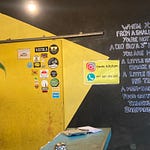
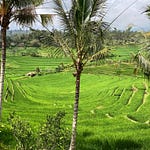

Share this post